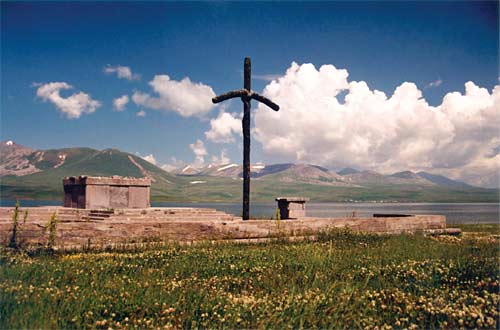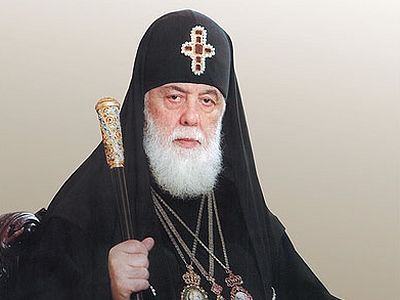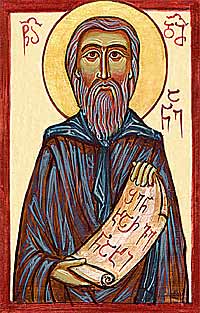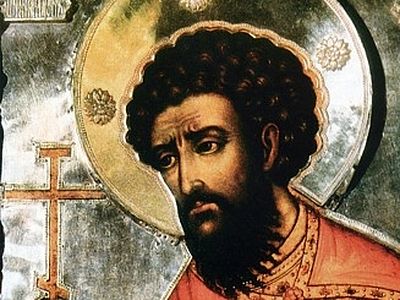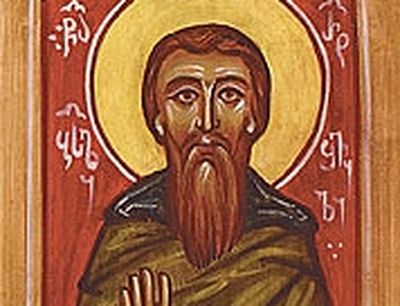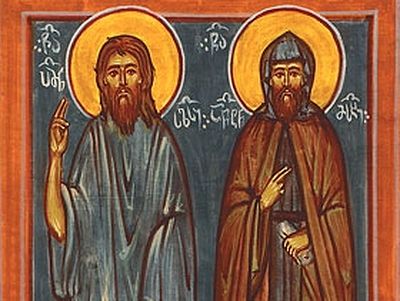Memory 20 May (2 June)
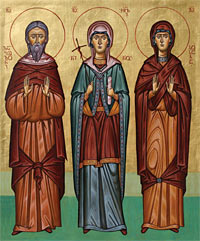 Sts. Zabulon and Sosana with St. Nino.
Sts. Zabulon and Sosana with St. Nino.
|
| Sts. Zabulon and Sosana with St. Nino. |
According to Holy Tradition, St. Nino and Great-martyr George were blood relatives. At the same time as St. George’s martyrdom, a certain nobleman, the servant of God Zabulon, arrived in Rome from Cappadocia. Zabulon began to serve in the emperor’s army, and before long he was widely recognized as a courageous cavalryman and a fine soldier.
During a battle with the Franks the Lord granted victory to Zabulon — he captured the Frankish king and his suite and delivered them to the Roman emperor. The emperor sentenced the captives to death, but before they were executed they confessed their desire to be baptized into the Christian Faith. Zabulon relayed this to the emperor, and Zabulon himself became their godfather. Then he pleaded with the emperor to have mercy on his godchildren, and the emperor set them free.
Nearly all the Franks were converted to Christianity as a result of Zabulon’s struggles on behalf of the Faith. A 9th-century Georgian hymnographer wrote, “Her father Zabulon converted Gaul with his sword, and blessed Nino converted Georgia with the Life-giving Cross.”
Some time later, St. Zabulon journeyed to Jerusalem on a pilgrimage. While he was there he distributed all his possessions to the poor and began to serve Patriarch Juvenal of Jerusalem. There he met Sosana, the sister of the patriarch. Shortly thereafter they were joined in marriage by the patriarch.
The newly wedded couple moved to Cappadocia, where they had a baby girl whom they named Nino. While raising Nino, St. Sosana served God and the needy with great dedication.
When Nino reached the age of twelve, her parents sold all their possessions and moved back to Jerusalem. With the blessing of Patriarch Juvenal, Zabulon departed for the wilderness to begin a life of asceticism. The place where he labored is known only to God. With the patriarch’s blessing, Sosana ministered to the poor and infirm. On December 10, 1996, the Georgian Orthodox Church declared Zabulon and Sosana, the parents of St. Nino, confessors of the Christian Faith. Living during a time when pagan religions were still widely practiced and Christians were often persecuted, they converted many people and then abandoned worldly things to follow God alone.
Through the prayers and intercessions of Sts. Zabulon and Sosana, new luminaries of the Georgian Church, may the Most Holy Trinity bless all who in faith and love pray unto them!
